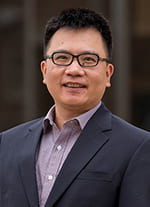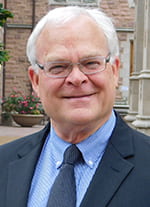A new study captures parents’ perspectives on the influence that Child Development Accounts can exert over children’s educational attainment and parental saving for children’s higher education.
Successful policymaking depends on public support. In policies affecting children, parents’ understanding and opinions matter.
A new study from Center for Social Development researchers Jin Huang, Sondra G. Beverly, Margaret M. Clancy, and Michael Sherraden explores parent perceptions of Child Development Account (CDA) policy design. Published in the journal Child and Family Social Work, “Parental Views on Universal-Asset Building Policy for All Children” finds broad parental agreement that the design features are important for children’s educational attainment and motivating parents to save.
“Public support is a critical element in the effective implementation of asset-building policies,” said Sherraden, the George Warren Brown Distinguished University Professor at Washington University in St. Louis and director of the Center for Social Development. “This new research shows that parents recognize the value of CDA policy elements for children’s educational attainment and preparation for higher education.”
Initially proposed by Sherraden in 1991, CDAs are asset-building accounts that can begin as early as birth, often include public or private matching funds, target progressively structured deposits for the most vulnerable, and help children build assets for the future. The goal of CDAs is to provide a financial foundation for lifelong development through asset accumulation. The underlying policy is the subject of an ongoing social experiment.
SEED for Oklahoma Kids (SEED OK) is an academically rigorous and long-term policy experiment with CDAs in the United States. A group of newborn children were randomly selected from Oklahoma birth records, with half assigned to a treatment group and half to a control group. Those in the treatment group automatically received a CDA with a substantial seed deposit, and SEED OK offered their parents incentives to set aside savings in a their own Oklahoma 529 college savings plan account. Children in the control group received no account or incentive. SEED OK is a true experiment, investigating the impacts of CDAs for children and their parents.
A focus on parents
Public support is a foundation for viability of any policy initiative. Policymakers require support of the people, an endorsement that transcends political affiliations or ideology.
The collective voice of the public serves as a barometer, reflecting the resonance and relevance of proposed policies within the societal fabric. In policymaking surrounding child well-being, the foundation of success lies in securing and maintaining support from parents.
The new study from SEED OK researchers examined parental views on the capacity of CDA policy features to shape educational attainment and to motivate parental saving for children’s higher education. The results presented in the study include input from parents in the control group, whose members did not receive CDAs.
In response to a question about educational attainment, over 80% of surveyed parents said that all five presented policy features – automatic and universal enrollment, $1,000 automatic initial deposit at birth, additional automatic deposits throughout childhood, larger automatic deposits for lower income children, and deposits that do not affect college financial aid – were important for earning a college degree or trade-school certificate.
The survey also asked about saving, and over 90% of parents indicated that small penalties on noneducation withdrawals and a savings match for parent deposits were important for encouraging parents to make their own deposits for children’s education. Over 80% found low account management fees and tax benefits for parental deposits to be important CDA policy features for encouraging parental saving.
As the authors note, the findings show that parents value CDA features to achieve asset building for all children, not just for their own.
“These findings and others from SEED OK indicate that CDA policies provide opportunities to foster a more equitable future for the youngest members of our communities,” said CSD Faculty Director Jin Huang, the study’s lead author. Huang is a professor in the Saint Louis University School of Social Work and research professor in the Brown School at Washington University.
The success of child-focused policies hinges on a delicate balance of empathy, pragmatism and support of those most intimately involved in the upbringing of children—the parents. Their involvement also contributes to a sense of collective responsibility for the well-being of future generations.
“Parents’ endorsement of CDA features suggests potential for widespread support for this policy to build assets for children,” said Policy Director Margaret Clancy, who oversees the center’s College Success initiative and the SEED OK experiment.
As CDA policies continue to take shape within the United States and beyond, perspectives of parents will contribute to the success of those policies.




